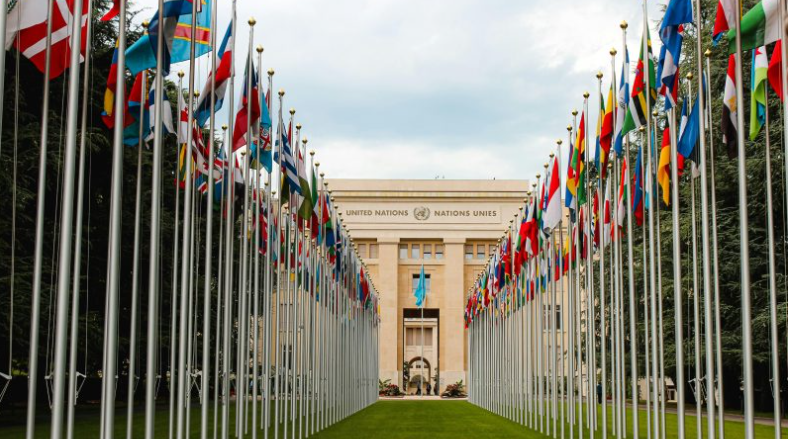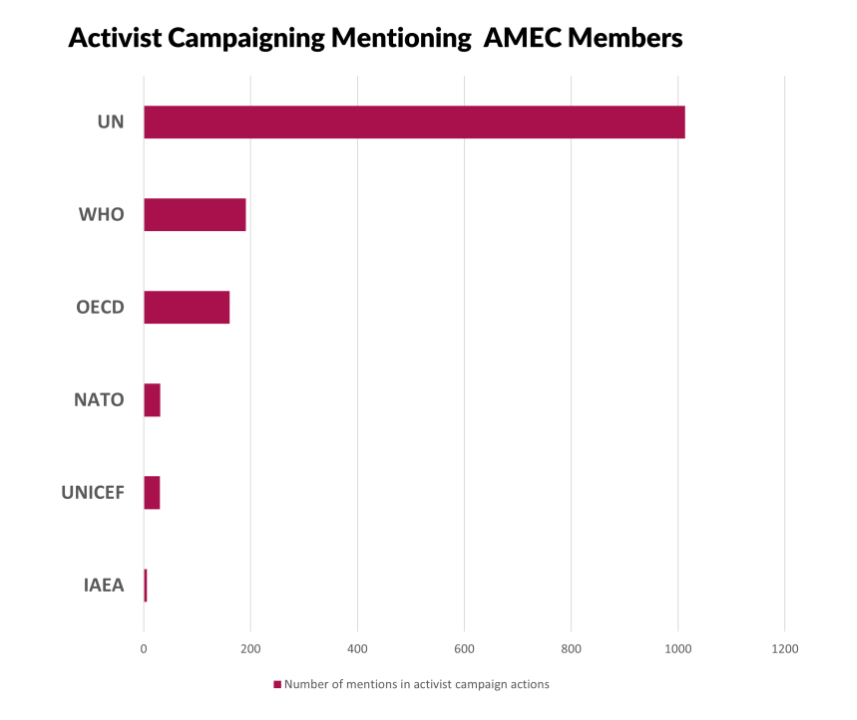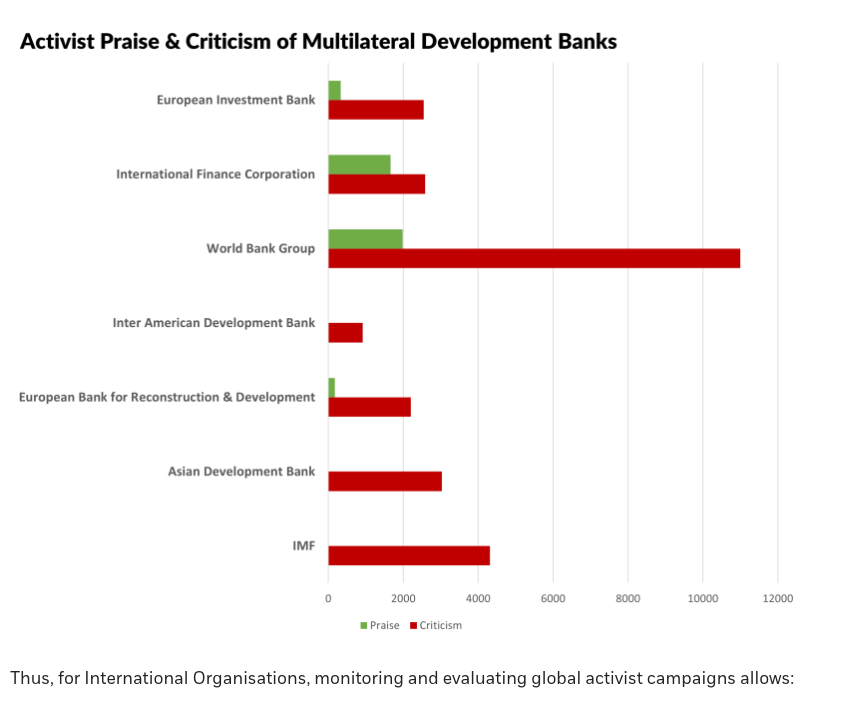
Explained: Why Activists are Influential Stakeholders for International Organisations

Many don’t realise that activists don’t just target companies, they also praise, criticise, and pressure International Organisations. While campaigning targeting companies leverages corporate reputation, regulation, and consumer behaviour, campaigning concerning IOs generally aims to:
- Use the policies, guidelines, and standards of IOs to hold companies and governments accountable.
- Criticise or praise the policies and projects of IOs, for issues such as impacts on affected communities or the environment.
- Call for more stringent policies or standards to create new norms.

SIGWATCH data shows that the UN is the most frequently mentioned multilateral organisation, mainly because of the wide range of contexts in which it is mentioned.
Some NGOs make passing references to UN agencies or reports in their campaigns, others collaborate with UN agencies, others denounce countries to the UN, while others demand action from the UN on rights or environmental abuses.
Notably, last year’s COP28 attracted a lot of attention to the UN, due to accusations of industry influence over the event.
Click here to get in touch and understand how SIGWATCH can help your business
Multilateral Development Banks & Activism
For organisations such as multilateral development banks, SIGWATCH data can split out activist praise and criticism. Criticism is the main tool that activists use to identify issues and push for change, with praise used to encourage the emulation of ‘model’ organisations. As such, it is almost always the case that any
entity, whether it be a corporation or an International Organisation, will receive more criticism than praise from activists.
Click here to get in touch and understand how SIGWATCH can help your business
SIGWATCH data shows that the World Bank receives significantly more attention than other development banks, mainly because NGOs tend to view the World Bank as the standard setter. For other development banks, much of the praise that activists give relates to investment policy, while the criticism tends to relate to impacts of investments, or investments in ‘polluting’ infrastructure.

- A true understanding of where activists are focusing their attention, before issues break into the media or public discourse.
- Systematic monitoring of civil society reactions to policies and initiatives across all regions.
- The ability to factor a diverse range of voices into evidence-based policy making.